Subtotal: ৳ 401.30
Prompton | Capsule | 20 mg | 10 pcs
৳ 90.00
Brand Name: Prompton Capsule (Delayed Release)
Generic: Rabeprazole Sodium
20 mg
Manufacturer: Radiant Pharmaceuticals Ltd.
Unit Price: ৳ 9.00 (10 x 10: ৳ 900.00)
Strip Price: ৳ 90.00
Indications
Rabeprazole Gastro-resistant tablets are indicated for the treatment of:
- Active duodenal ulcer
- Active benign gastric ulcer
- Symptomatic erosive or ulcerative gastro-esophageal reflux disease (GERD).
- Gastro-esophageal Reflux Disease Long-term Management (GERD Maintenance)
- Symptomatic treatment of moderate to very severe gastro-esophageal reflux disease (symptomatic GERD)
- Zollinger-Ellison Syndrome
- In combination with appropriate antibacterial therapeutic regimens for the eradication of Helicobacter pylori in patients with peptic ulcer disease.
Therapeutic Class
Pharmacology
Dosage
Active Duodenal Ulcer and Active Benign Gastric Ulcer: The recommended oral dose for both bioactive duodenal ulcer and active benign gastric ulcer is 20 mg to be taken once daily in the morning. Most patients with active duodenal ulcer heal within four weeks. However, a few patients may require an additional four weeks of therapy to achieve healing. Most patients with active benign gastric ulcer heal within six weeks. However, again a few patients may require an additional six weeks of therapy to achieve healing.
Erosive or Ulcerative Gastro-Esophageal Reflux Disease (GERD): The recommended oral dose for this condition is 20 mg to be taken once daily for four to eight weeks.
Gastro-Esophageal Reflux Disease Long-term Management (GERD Maintenance): For long-term management, a maintenance dose of rabeprazole sodium 20 mg or 10 mg once daily can be used depending upon patient response.
Symptomatic treatment of moderate to very severe Gastro-Esophageal Reflux Disease (symptomatic GERD): 10 mg once daily in patients without oesophagitis. If symptom control has not been achieved during four weeks, the patient should be further investigated. Once symptoms have resolved, subsequent symptom control can be achieved using an on-demand regimen taking 10 mg once daily when needed.
Zollinger-Ellison Syndrome: The recommended adult starting dose is 60 mg once a day. The dose may be titrated upwards to 120 mg/day based on individual patient needs. Single daily doses up to 100 mg/day may be given. 120 mg dose may require divided doses, 60 mg twice daily. Treatment should continue for as long as clinically indicated.
Eradication of H. pylori: Patients with H. pylori infection should be treated with eradication therapy. The following combination given for 7 days is recommended. Rabeprazole sodium 20 mg twice daily, clarithromycin 500 mg twice daily and amoxicillin 1g twice daily.
Administration
Interaction
Contraindications
Side Effects
Pregnancy & Lactation
Precautions & Warnings
- Symptomatic response to therapy with Rabeprazole does not preclude the presence of gastric or oesophageal malignancy, therefore the possibility of malignancy should be excluded prior to commencing treatment with Rabeprazole 20 mg Gastro-resistant Tablets.
- Patients on long-term treatment (particularly those treated for more than a year) should be kept under regular surveillance.
- Proton pump inhibitors, especially if used in high doses and over long durations (>1 year), may modestly increase the risk of hip, wrist and spine fracture, predominantly in the elderly or in presence of other recognised risk factors. Observational studies suggest that proton pump inhibitors may increase the overall risk of fracture by 10–40%. Some of this increase may be due to other risk factors. Patients at risk of osteoporosis should receive care and they should have an adequate intake of vitamin D and calcium.
- A risk of cross-hypersensitivity reactions with other proton pump inhibitor or substituted benzimidazoles cannot be excluded.
- Patients should be cautioned that Rabeprazole gastro-resistant tablets should not be chewed or crushed, but should be swallowed whole.
- There have been post marketing reports of blood dyscrasias (thrombocytopenia and neutropenia). In the majority of cases where an alternative aetiology cannot be identified, the events were uncomplicated and resolved on discontinuation of rabeprazole.
- Hepatic enzyme abnormalities have been seen in clinical trials and have also been reported since market authorisation. In the majority of cases where an alternative aetiology cannot be identified, the events were uncomplicated and resolved on discontinuation of rabeprazole.
- No evidence of significant drug related safety problems was seen in a study of patients with mild to moderate hepatic impairment versus normal age and sex matched controls. However because there are no clinical data on the use of rabeprazole in the treatment of patients with severe hepatic dysfunction the prescriber is advised to exercise caution when treatment with Rabeprazole 20mg Gastro-resistant. Tablets is first initiated in such patients.
- Co-administration of atazanavir with Rabeprazole is not recommended.
- Treatment with proton pump inhibitors, including rabeprazole, may possibly increase the risk of gastrointestinal infections such as Salmonella, Campylobacter and Clostridium difficile.
Hypomagnesaemia: Severe hypomagnesaemia has been reported in patients treated with PPIs like rabeprazole for at least three months, and in most cases for a year. Serious manifestations of hypomagnesaemia such as fatigue, tetany, delirium, convulsions, dizziness and ventricular arrhythmia can occur but they may begin insidiously and be overlooked. In most affected patients, hypomagnesaemia improved after magnesium replacement and discontinuation of the PPI. For patients expected to be on prolonged treatment or who
take PPIs with digoxin or drugs that may cause hypomagnesaemia (e.g., diuretics), health care professionals
should consider measuring magnesium levels before starting PPI treatment and periodically during treatment.
Influence on vitamin B12 absorption: Rabeprazole sodium, as all acid-blocking medicines, may reduce the absorption of vitamin B12 (cyanocobalamin) due to hypo- or a- chlorhydria. This should be considered in patients with reduced body stores or risk factors for reduced vitamin B12 absorption on long-term therapy or if respective clinical symptoms are observed.
Subacute cutaneous lupus erythematosus (SCLE): Proton pump inhibitors are associated with very infrequent
cases of SCLE. If lesions occur, especially in sun-exposed areas of the skin, and if accompanied by arthralgia, the patient should seek medical help promptly and the health care professional should consider stopping Rabeprazole. SCLE after previous treatment with a proton pump inhibitor may increase the risk of SCLE with other proton pump inhibitors.
Interference with laboratory tests: Increased Chromogranin A (CgA) level may interfere with investigations for neuroendocrine tumours. To avoid this interference, Rabeprazole 20mg Gastro-resistant Tablets treatment should be stopped for at least 5 days before CgA measurements (see section 5.1). If CgA and gastrin levels
have not returned to reference range after initial measurement, measurements should be repeated 14 days after cessation of proton pump inhibitor treatment.
Use in Special Populations
Renal and hepatic impairment: No dosage adjustment is necessary for patients with renal or hepatic impairment.
Pediatric populations: Rabeprazole is not recommended for use in children due to a lack of data on safety and efficacy.
Overdose Effects
Storage Conditions
| Generic Name | Rabeprazole Sodium |
|---|---|
| Capsule | 20 mg |
Only logged in customers who have purchased this product may leave a review.

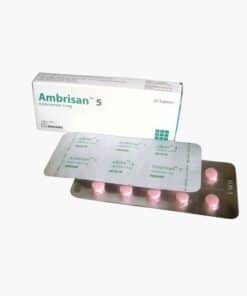
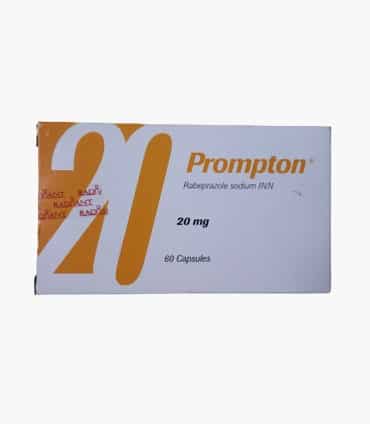

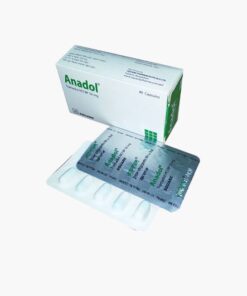
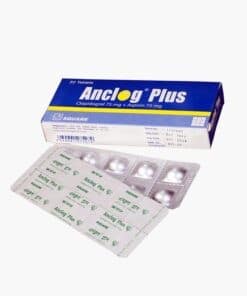
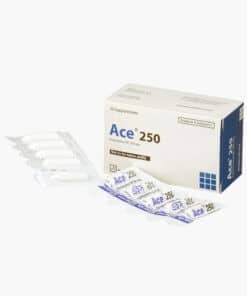
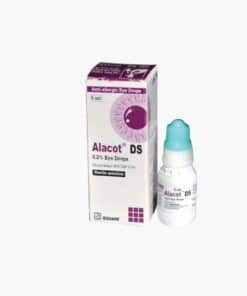
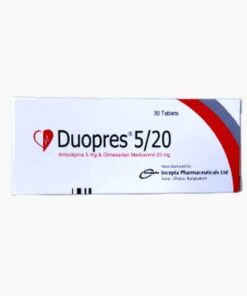
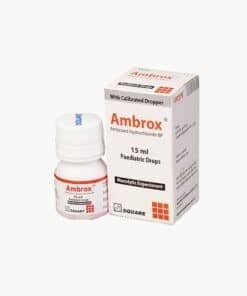
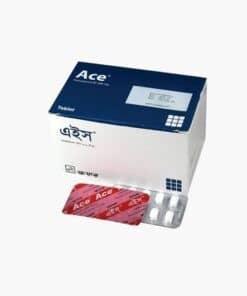
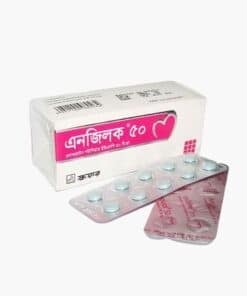
Reviews
There are no reviews yet.